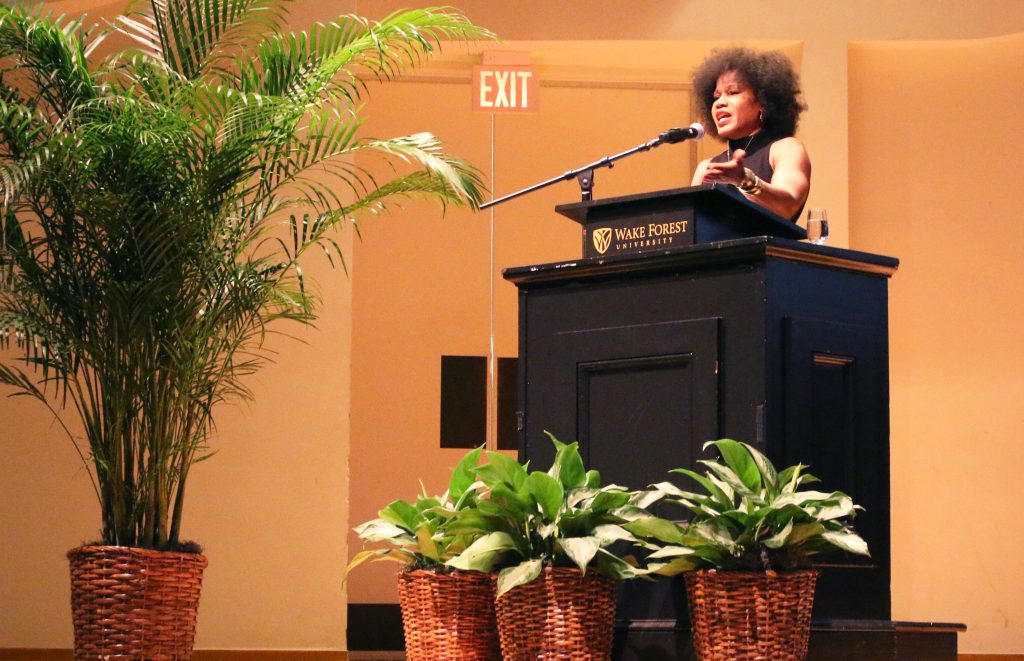Urban Revitalization Strategist Majora Carter Gives WFU Earth Week Address

When dirty industries come into disadvantaged communities and jobs have no promise of advancement, the goal of many young people is to get out. Sustainable South Bronx founder and economic development guru Majora Carter champions a different philosophy. When she says, “You don’t have to move out of your neighborhood to live in a better one” she reminds us that there is always something worth investing in.
During her March 21 Wake Forest Earth Week keynote address, Carter told of growing up in the South Bronx. She witnessed her neighborhood being plagued by unemployment, poor health, and increased pollution and saw a college education as her way out. While in graduate school at New York University, Carter moved back in with her parents to save money; it was during this time that she reacquainted herself with her community. With high crime rates, pollution, poverty, and other challenges, Carter saw her neighborhood needed an advocate to begin the re-imagination process—someone who had a vision for a positive, vibrant community.
In her address, Carter noted the typical situation for low-status communities: investors come in from the outside and either gentrify the neighborhood or develop resources which only help maintain the poverty level—think dollar stores, pawn shops, and payday loan marts. According to Carter, these additions do not add to the creation of community. Instead, communal spots like coffee shops, family restaurants, and parks– places which inspire and promote aspirational thinking– are central to revitalization.
As a result, in 2001, Carter founded Sustainable South Bronx, a non-profit environmental justice solutions corporation. Majora Carter began by converting a hazardous waste dump into the first waterfront park the neighborhood had seen in nearly a century. From there, she continued to work toward sustainable community development, negotiating business deals, and helping locals craft a thriving area tailored to their wants and needs.
“Majora Carter’s talk was inspiring because she spoke about her work in such a practical, accessible way. She made me feel like there are no excuses to not try to make the world a better place. She saw a problem in her neighborhood and she fixed it,” Office of Sustainability intern Savannah Baber (’19) said. “While it is of course more complex than that, Majora was able to show all of us that passion, ambition, and empathy can combine to create powerful change.”
Throughout her lecture, Carter called those at Wake Forest into action for socio-economic and environmental grassroots leadership. During the Q&A session, questions such as “What does community revitalization mean in terms of a partnership between WFU and the Winston-Salem area?” and “What is the appropriate role of students, faculty, and staff in helping to foster better relationships and opportunities in the neighborhoods surrounding our campus?” were posed. Majora gave insights, but also encouraged attendees to reflect on these questions themselves.
The takeaway message was clear: solutions to some of the biggest problems of our time, whether ecological, economic, or social, start locally.
